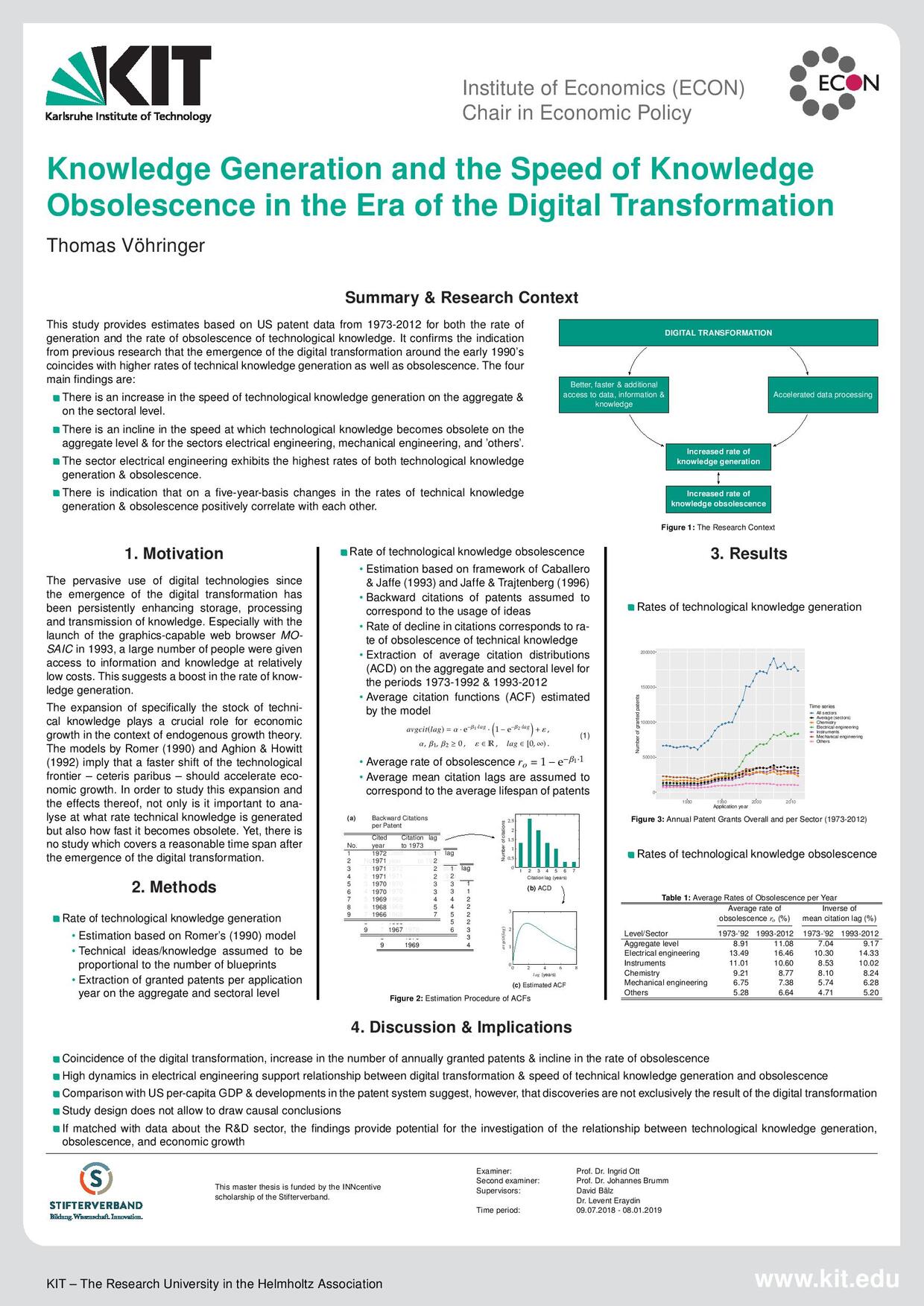Knowledge Generation and the Speed of Knowledge Obsolescence in the Era of the Digital Transformation
- Type:Masterarbeit
- Supervisor:
Summary
The pervasive use of digital technologies since the emergence of the digital transformation has been persistently enhancing storage, processing and transmission of knowledge. Especially with the launch of the graphics-capable web browser MOSAIC in 1993, a large number of people were given access to information and knowledge at relatively low costs. This suggests a boost in the rate of knowledge generation. The expansion of specifically the stock of technical knowledge plays a crucial role for economic growth in the context of endogenous growth theory. The models by Romer (1990) and Aghion & Howitt (1992) imply that a faster shift of the technological frontier – ceteris paribus – should accelerate economic growth. In order to study this expansion and the effects thereof, not only is it important to analyse at what rate technical knowledge is generated but also how fast it becomes obsolete. Yet, there is no study which covers a reasonable time span after the emergence of the digital transformation. Therefore, this master thesis aims at examining whether there is a significant difference between both the speed of knowledge generation and its obsolescence before and after 1993. It provides estimates based on US patent data from 1973-2012 for both the rate of generation and the rate of obsolescence of technological knowledge. Moreover, it confirms the indication from previous research that the emergence of the digital transformation around the early 1990’s coincides with higher rates of technical knowledge generation as well as obsolescence.

